Today we’re going to be talking about how anxious attachment styles handle breakups. As it turns out, we have a lot of experience in dealing with anxious attachment styles since most of the clients we interact with classify themselves as anxious,
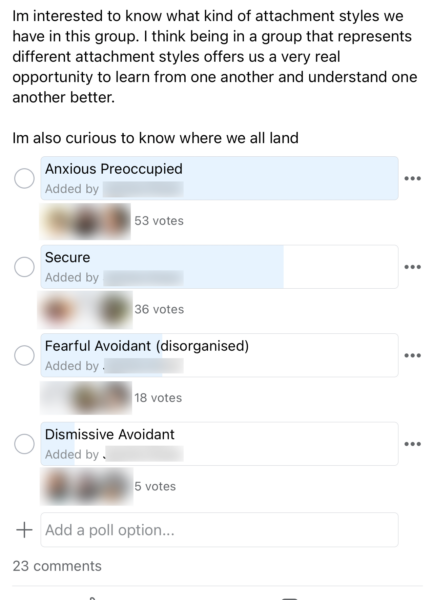
For reference, that was a poll done in our private Facebook group which is essentially a collection of all the people who have coached with us or bought one of our courses.
Through studying common behaviors of members in the group we’ve gotten a lot of insight into how anxious individuals act after a breakup.
- The Anxious Attachment Core Wound
- Highly Likely To Search Online For “Get Your Ex Back” Articles
- Hyper Focus On Exes Behaviors Post Breakup
- Time Dilation During No Contact
- Often End Up In On Again/Off Again Relationships
Let’s begin first by talking about the core wound.
The Anxious Attachment Core Wound
This was a concept first introduced by my colleague, Coach Tyler Ramsey, in this video interview I did with him,
According to him someone with an anxious attachment style is,
A person that typically requires a lot of attention and affection. They really like to feel close to their partners, it’s not uncommon for them to want to spend every single day with them. For many their entire self worth is wrapped up into their relationship which isn’t always the most healthy thing.
But what makes an anxious person anxious? Well, to answer that you have to take a look at what Tyler refers to as their core wound.
What is a core wound?: It’s simply a core reason that explains their behaviors.
For an anxious individual that core wound is comically simple, they have a fear of abandonment and of being alone.
So, as you can imagine we see a lot of anxious behaviors after a breakup because the break often is their worst fear coming true.
That’s why so many of our clients,
- Beg for their exes back
- Blow up their exes phone
- Try ridiculous hail mary approaches to win exes back
Basically their thinking is that if they can correct whatever problems “they did wrong” their ex will come back but here’s the thing. Very rarely do we encounter a situation where one person is at fault 100% of the time.
The anxious person will not believe this of course. They’re going to think that they need to fix the relationship by any means necessary and that often leads to them….
They Are Most Likely To Search Online For “Get Your Ex Back” Articles
Who would know this better than me?
After all, the vast majority of the articles I’ve written revolve around ways to bridge the gap and recover your relationship. Yet, what I find perhaps most interesting about the website is how the advice has evolved.
In 2012 when I first started writing for the website the advice was mostly based on looking at what most people thought worked.
Ten years later in 2022 the advice now is a lot more nuanced and healthy.
We have a great understanding that our role is to facilitate your transformation from an anxious attachment style towards a more secure one.
Nevertheless, when many clients enter our program they are classifying themselves as anxious attachment styles.


What Are Your Chances of Getting Your Ex Boyfriend Back?
Take the quizAnd often we aren’t even their first stop. Usually they’ve gone to one of our competitors first searching for help on how to get their ex back, left dissatisfied and then end up finding us.
Here’s my point.
Most of our clients are frantically searching for a way to get their exes back because they believe it will cure the pain they are feeling right now.
Anything to solve that core wound.
They Will Hyper Focus On Their Exes Behaviors
I figured I’d use some real life examples to illustrate this point.
The anxious individual will end up hyper focusing on what their exes is doing after a breakup trying to pick it apart or glean some hidden meaning.
As you can imagine, with almost 7,000 members in our private facebook support group there are a lot of questions about why an ex is doing this or doing that.
Sometimes it’s small things like this,
Sometimes our members like to muse on the what is going through an exes head when they ghost you,
Here’s the thing. It’s completely normal for an anxious individual to hyper focus on an exes behavior and what I’m most proud of is that the community we’ve created online has helped other anxious people realize this and as a result helped give them a safe space to vent.
Imagine for a moment if you will an anxious individual going through a breakup that doesn’t have any place to vent that is deemed as “safe.”
Where do they go?
- Friends
- Family
- Acquaintances
And those very same friends and family often get so frustrated with them that they aren’t supportive of the trauma of a breakup.
Of course, one of the interesting things we’ve noticed about attachment styles is that their sense of time is different than you would expect.
Time Dilation During No Contact
If you aren’t familiar with what the no contact rule is then allow me to give you a quick refresher,
The no contact rule refers to a period of time where you cut off all conceivable communication with an ex after a breakup. The intent of this tactic should NOT be used to make your ex miss you but instead should be used to rebuild your own life so that you outgrow your ex. By doing this, the no contact rule can have the added benefit of making an ex miss you
If you want even more information on why it’s sort of a big deal I’d recommend watching this YouTube video,
Ultimately an interesting thing happened when we started studying how our clients reacted to the no contact rule based on their attachment style.
According to this poll,

What Are Your Chances of Getting Your Ex Boyfriend Back?
Take the quiz
- 52% of our members classify as anxious attachment styles
- 33% classify as securely attached
- 16% as fearful avoidant
- 4% as dismissive avoidant
The reason I bring it up again is because we don’t just have anxious individuals in the group. We have a good amount of secure people and avoidant people as well.
Interestingly we found something fascinating when studying how they perceive time during no contact. A sort of time dilation factor that most people don’t ever notice.
Here’s how it works.
Let’s imagine that you are doing a 30 day no contact rule. Based on your attachment style we can tell how difficult that no contact rule will be fore you to complete without failing.
- To the anxious person the 30 days will probably end up feeling like 45 days
- To the avoidant person the 30 days will probably end up feeling like 15 days
- To the secure person the 30 days will end up feeling like 30 days
Anxious individuals have a really hard time during the no contact rule because everything from their core wound to their internal programming is telling them that they need to fix the broken relationship as soon as possible.
Ignoring an ex, for a month no less, literally goes against what their brain has been hardwired to do since birth. This is why we see anxious individuals as having the hardest time during no contact.
As you can imagine, most of our clients fail no contact at least one time before completing it successfully.
And yes, before you ask every time you do fail no contact it loses a bit of its effectiveness.
Why are most of our clients failing no contact at least one time? Probably, because by their own admission, they are anxious individuals and this time dilation factor doesn’t just appear during the no contact rule.
It appears during most of their post breakup experiences. It’s often why they get caught in these on again/off again relationships.
Highly Likely To End Up In On Again/Off Again Relationships
Ok, so we are going to get really technical here.
I’ve stated that most of our clients tend to be anxious,

Interestingly we find that the majority of our clients exes tend to be avoidant,
This means that the average pairing we see in our coaching practice is anxious client, avoidant ex.
Interestingly this has a lot of relevance to the avoidant self fulfilling cycle,
So, basically what ends up happening is that both the anxious and the avoidant get caught up in this self fulfilling cycle.

What Are Your Chances of Getting Your Ex Boyfriend Back?
Take the quizFor the avoidant person they have fallen in love with the idea of not having deep commitments and so they use the anxious persons anxious tendencies as a perfect excuse to leave the relationship.
Of course, after they’ve been alone for long enough this part sort of kicks in,
They begin to feel lonely and wonder aloud why this is always happening to them. Why can’t they ever find the right person.
Ultimately after enough time goes by they begin to start missing their ex (you.)
Only when enough time has gone by will they truly start to reminisce about the past relationship and sometimes they will get back into a relationship as a way to relive that nostalgia.
The anxious person meanwhile is all to happy to take them back but it’s a self fulfilling prophecy for them as well. They sit there and think, “I need to be perfect this time.”
And in trying too hard to be perfect they don’t have an outlet for their anxious tendencies to come out so they store them inside holding them secret.
But it’s the volcano effect.
After enough time goes by they burst causing the avoidant to say,
“See, I knew they hadn’t changed” and then the whole cycle starts again.
On again.
Off again.
On again.
Off again.
Over and over and over.
The goal for all attachment styles that are considered insecure,
Is to begin the hard work towards shifting their attachments towards being more secure. How do you do that? Well, that’s a question for another day or another article perhaps.
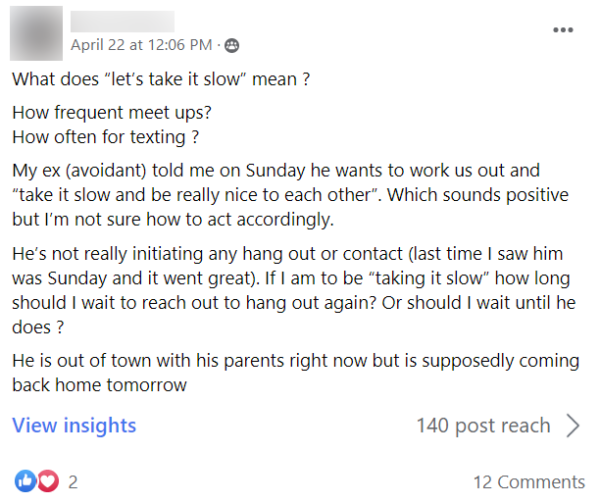
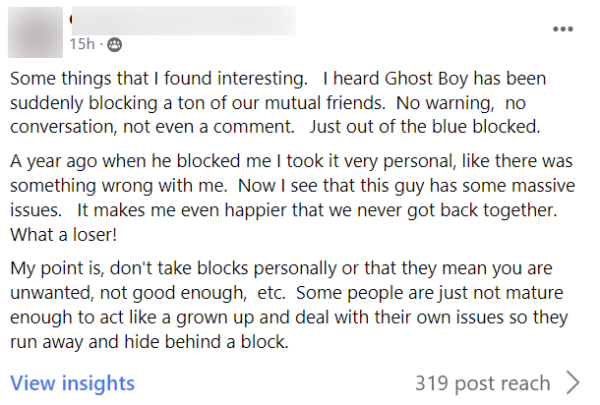
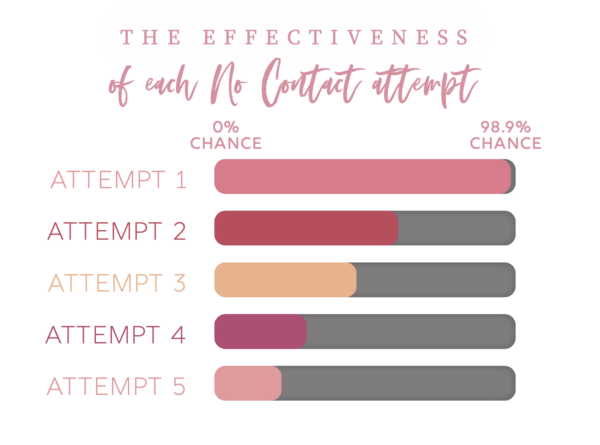
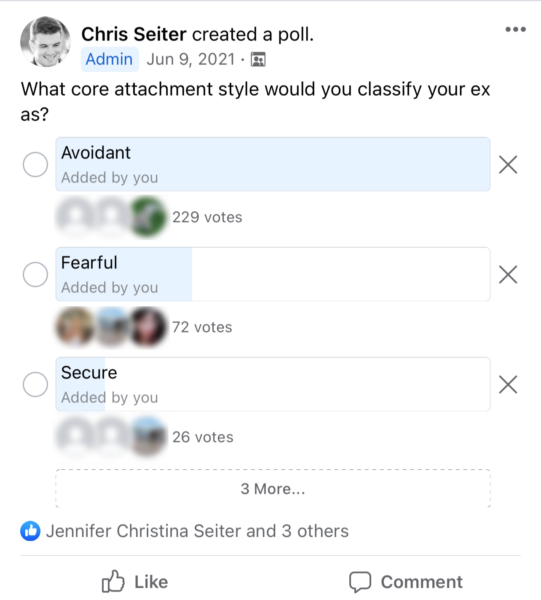
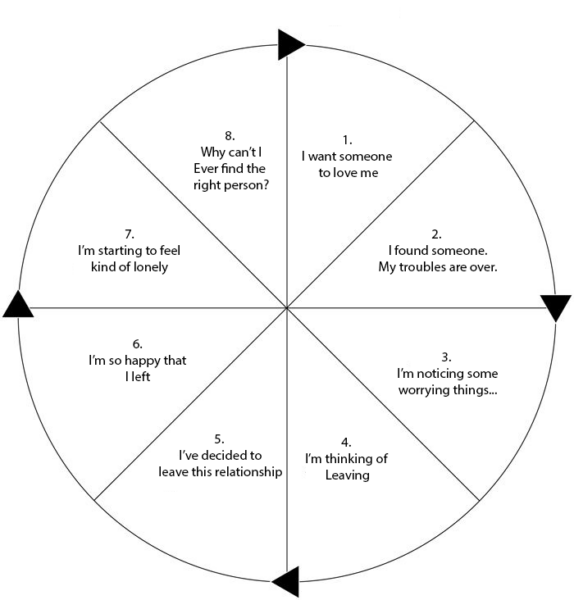
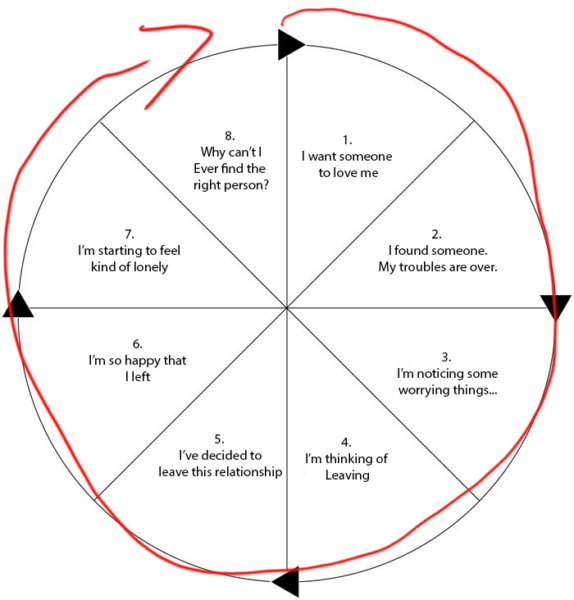
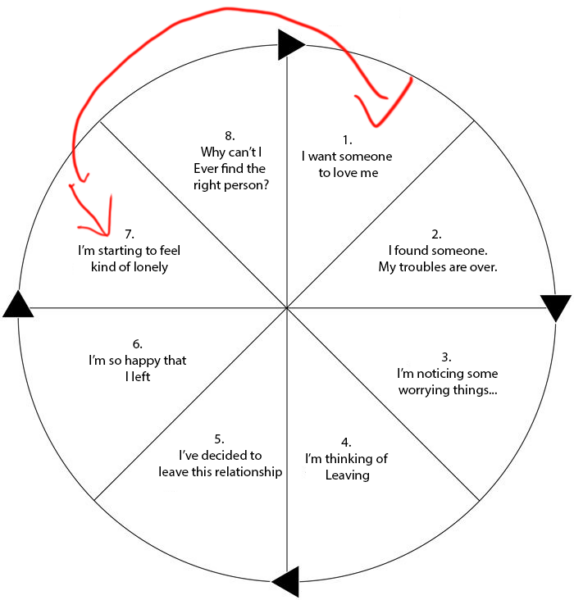
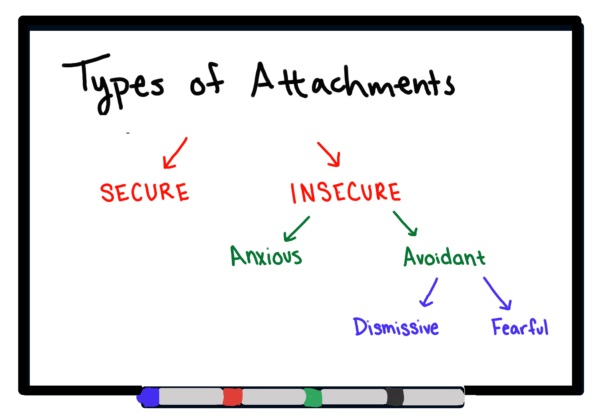
Tina M Kolinas
June 7, 2022 at 6:48 pm
Just a terrific and informative site!